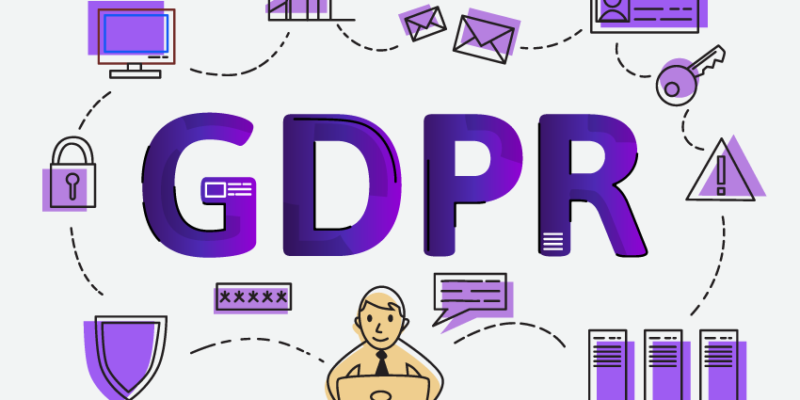
GDPR and Professional Insight
Are you a developer with multiple burning questions to ask from a GDPR professional? If yes, read on! Let us help you find the best answers, for all of your questions, right from the GDPR experts!
No doubt that the General Data Protection Regulation is today’s hottest topic. For many organizations, compliance assurance is a board agenda. But the real challenge is that achieving compliance has never been a simple task!
Indeed, all the organizations are now preparing for the legal requirements. Enactment of European Union’s GDPR will impose these legal requirements. The last priority in the past two years of many managers, developers and agencies has been GDPR compliance.
Dumping energy to fulfill government regulated data protection laws is complete waste of time and energy. Moreover, you don’t even live inside the EU so so such laws cannot affect you, right?
Think Again!
If you follow the news, you would know that May 25th marks the deadline for GDPR compliance. These new laws will apply to any business that collects information from EU residents. Not to mention, the sole responsibility for compliance lies with the site owner.
Indeed, this law has enormous implications for all WP users all over the world. The forward-thinking members of WP community have already started preparing. And if you belong to this community, then you should also do the same. They are working on core compliance, resources, and hooks for the rest of us to learn and implement.
GDPR came into effect in May 2018. It has spurred so many questions for developers as well as IT professionals. They are trying to get up- to- date on requirements of the regulation and how to ensure compliance in the most efficient manner.
IAPP stands for International Association of Privacy Professionals. As per IAPP , GDPR requires around 75,000 officers of Data Protection.
However, there is a massive shortfall. This shortfall is because of the individuals with very less knowledge. They don’t know how to guide companies on their compliance journey. If you too have limited information about GDPR guidelines. Here is a chance to remove all your confusions.
In This Post, We Will Answer The Common Questions Related To GDPR Compliance.
The discussion will help prepare for the GDPR by:
- Tracking and identifying personal data, whatever it is
- Tracking and identifying personal data, whatever it is
- Understanding its complete implications for the organization
- Implementing cyber security for the protection of data systems
- Responding to and detecting security breaches effectively
- Establishing a long-term GDPR compliance program
Who needs to comply with GDPR and is there any downside of not fulfilling?
GDPR applies to every organization that processes personal data of European Union residents. It applies to every organisation, regardless of their geographical location.
Several companies are unaware that GDPR regulation applies to them. Especially those companies which are outside the EU. Any organization that offers goods and services needs to follow GDPR requirements. Organizations that monitor the EU data subjects’ behavior also needs to follow GDPR.
If not, they will have to bear large fines for noncompliance. This can be as much as €20 million or at least 4% of the total global revenue of the company – whichever is higher. However, these is a tiered approach to such fines. For example, organizations may get 2% fined for not having organized record. Or not informing data subject or supervising authority about a breach. They may also get fined for not carrying out an impact assessment.

What do plugin authors incorporate in their plugins to assist the ones who use them to be compliant?
First, you must be able to answer ‘YES’ to this question:
Does your plugin handle or collect personal information?
No doubt, the term ‘personal information’ can be quite confusing. You must be wondering what we mean by it anyway. The answer is: It is the piece of data that is in combination with other data, or by itself, can classify a natural being. Some of the components of the personal data include name, e-mail, city and comments.
A WP installation cannot become GDPR compliant by upgrading to the WordPress version that contains hooks and filters of GDPR. You can miss out pieces of personal data stored on your website. This happens when you use plugins with such hooks and filters.
It’s the site owner who handles the GDPR compliant site. These hooks and filters are only the tools which make your work feasible to handle on a regular basis.
Is there any site owner checklist that can be used to help prepare for it regularly?
There are many checklists. Most of them usually look at GDPR form a more legal standpoint. While a few look at it from the technical perspective. However, a checklist is not the solution. Rather than taking this task as something to tick off, It better to ask yourself the following questions:
- Which personal data, in combination with other data or alone, does WP installation handle?
- Where does it actually all go, especially for what reason?
Your answers should be complete enough. The answer should figure out what data is relevant, storage location, purpose of storing and duration.
How can you prepare for GDPR if your business is established outside of the EU?
Well, there is no difference in the way organizations located outside the European Union should practice GDPR versus organizations located within the European Union. Organizations should have a clear understanding of location of customer’s data storage.
With that, you should also be aware of the information including personally identifiable information (PII) contained in such files, while being able to show them efficiently and quickly, in case it is requested by a data subject.
However, there are some services that address all the regulatory requirements of global businesses by offering complete protection and visibility over all the customer data in each location.
What is the thing that is easy to be overlooked during the preparation of GDPR?
The only thing that is often overlooked while preparing for GDPR is actually the data that is out of context, in terms of bigger picture. You can distinguish this type of data just by looking at it. For instance, if you are the only person with the name ‘X’ in the city you grew up in, this combination of data makes city personal.
The issue with theme and plugin developers is that it might not be obvious just by looking at the plugin isolated. However, when you look at it together with some other plugin, this data may be something you will need to put into a WP GDPR hook or filter.
Can we integrate privacy by design into the technical system?
It is said that nothing could be more permanent than just a temporary fix. For this reason, security best practices must be integrated by design. When you include appropriate security controls right from the project inception, your company makes sure that all the new systems/services are given security from the outset. Also, the price of retrofitting security controls is eliminated or vastly reduced after go-live.
What kind of services or plugins are the biggest offender of GDPR laws ?
Fortunately, the main plugins which handle data like Mail Poet, WooCommerce, Ninja Forms, and Gravity Forms understand that their plugins may be used to deal with personal data. Thus, they actively look into what the WP core is doing, at their own pace.
As long as there is no ‘GDPR compliance badge’ on your plugin repo, including your site admin plugins page, stay alert as a site manager about how every plugin on your website is collecting, storing and managing data. This is not new. You can easily get in contact with the plugin support team and ask in case you are unsure.
One part of WP success while becoming GDPR ready is to make the entire developers’ community to embrace the GDPR functionality. The only way it happens is when people demand it in the plugins they use.
How can GDPR reshape the data security strategy?
In order to meet GDPR standards, businesses must revise their current practices while changing the way they use, collect and transfer personal data. As stated earlier, personal data could be any information that may identify an individual both directly and indirectly like birthplace, name, national ID number or even IP address etc.
GDPR has a broader perspective. Thus, organizations which operate in the EU must revise their internal strategies to fully meet the requirements of the new law. The guideline brings changes in consent notifications, privacy notices, breach notifications and other, essentially shifting the private data ownership from a business to the individual.
Companies should be in a position to notify individuals of the period in which their data will be stored, if it is supposed to be moved, let individuals access and delete their personal data in specific conditions.
In short, governance and content collaboration are the part of an entire data protection strategy as well as a foundation for GDPR compliance.
What are the major steps to become GDPR compliant?
As the deadline looms, organizations are also struggling to find the best path to become GDPR compliant. Some businesses have no idea how and where to start, including the ones with dozens of data servers over multiple sites with files stored in the cloud.
Keep in mind that there is a huge fine for non-compliance. Nothing makes more sense than taking action to be fully compliant and to avoid this heavy fine.
Organizations, now need a simple, fast, scalable and enterprise-grade solution. Unless you get hold of a GDPR expert to help your business become GDPR compliant.
Here Are Some Major Steps To Start Your GDPR Journey:
- Assess the data or take a detailed look at all of the data.
- Define the procedures and processes and take a look at the process to handle data.
- Implement all the procedures and processes.
- Establish a proper monitoring system and get complete visibility into data handling procedures and processes of your organization.
- Implement proper check and balances while testing your procedures and processes on a regular basis.
- Stay prepared with a plan to deal with the worst-case scenario. Nothing could be better than having a plan in place to handle each scenario.
- Assess major costs and if any violation happens, stay prepared to handle the cost.
- Transfer a portion of risk and for that, look into some cyber insurance.
These steps will help you complete the GDPR journey smoothly and within the deadline.
The Bottom Line
The GDPR – General Data Protection Regulation – standardizes data protection in 28 EU countries. It imposes strict rules on processing and controlling personally identifiable information. GDPR also extends the personal data protection and data protection rights by providing control to EU residents.
Since there are several essential items in terms of regulation, the impact of them on a business will certainly be huge. It is expected to permanently change the way user data is used, stored and even collected.
So, if your business has the readiness towards the GDPR, it will be in a better position to plan and direct its resources and to reduce costs, address any gaps and increase organizational efficiency.
Facing any WordPress related issues? Consult WordPress experts.
Hope this article helped you to get an understanding. If you still have some questions about GDPR compliance, write it down in the comment section below!





